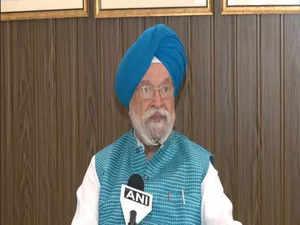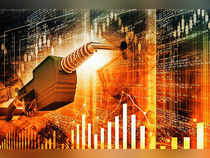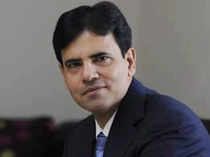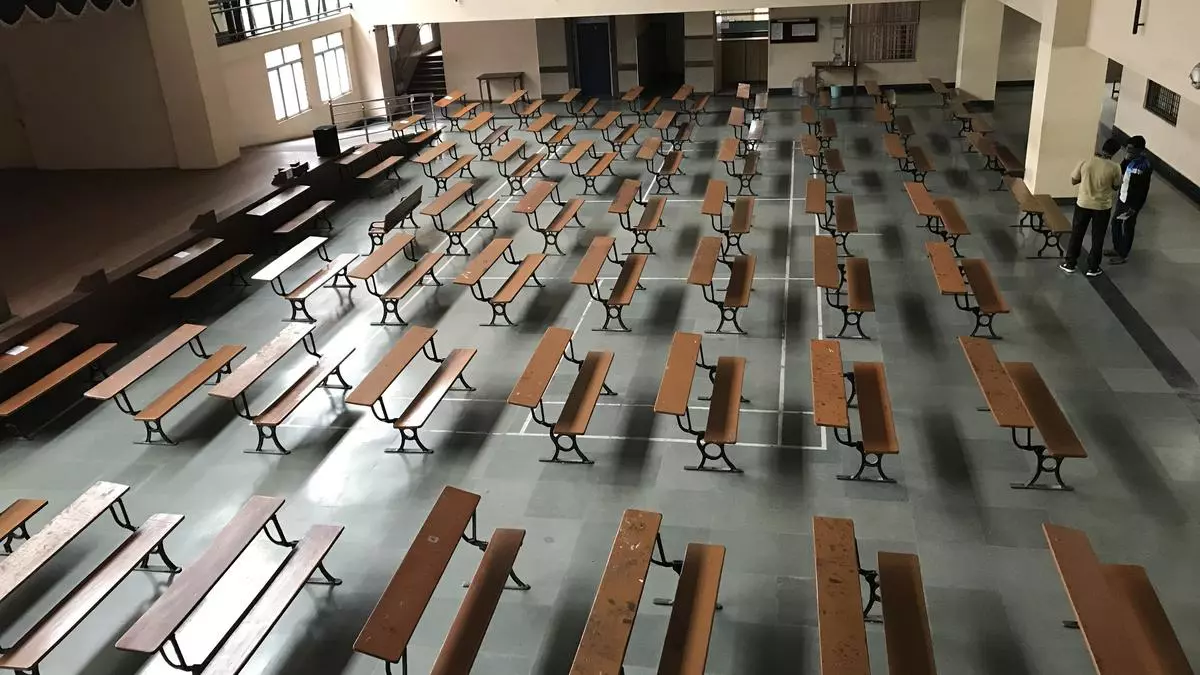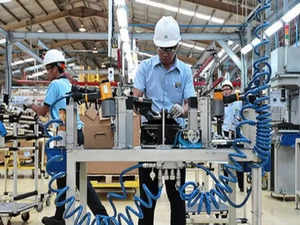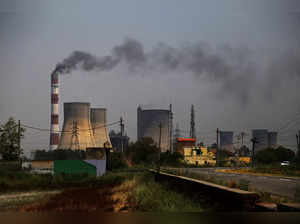Latest News
State-run oil marketing cos’ shares can see 16-18% upside: UBS
Last Updated: Jul 30, 2024, 07:29:00 AM ISTUBS has increased price targets for BPCL, HPCL, and IOC, forecasting a 16-18% upside. The firm upgraded IOC and HPCL to 'buy' while keeping BPCL at 'buy.' UBS anticipates crude price moderation, boosting integrated margins for Indian state-owned oil marketing companies without any retail fuel price cuts if crude stays above $80 per barrel.
India to boost refining capacity to 6.19 mln bpd by 2028, says minister
Last Updated: Jul 29, 2024, 05:17:00 PM ISTIndia's refining capacity is set to grow by about 20% to 309.5 million metric tons by 2028 to address increasing fuel demand, said the junior petroleum minister. The existing capacity is around 5.14 million bpd. Strategic petroleum reserves would cover 9.5 days of crude oil needs, and new storage facilities have been approved in Odisha and Karnataka.
No plan to mandate blending of ethanol with diesel: Govt
Last Updated: Jul 29, 2024, 03:38:00 PM ISTThe government stated that ethanol blending with diesel is experimental and there are no plans to mandate it due to issues like deposit formation in fuel tanks. Minister Hardeep Singh Puri emphasized the need for further testing and safety considerations. Ethanol blending with petrol, however, has reached 15%, targeting 20%.
IndiGo flags higher inflationary environment, escalation in fuel, airport costs
Last Updated: Jul 26, 2024, 07:44:00 PM ISTAirport charges have also started to climb upwards, and the airline is monitoring it as well as having discussions with airport partners. Further, maintenance works are going through a bit of an inflationary cycle, he said during an analyst's call.
Energy transition framework in the works: DEA Secy Ajay Seth
Last Updated: Jul 26, 2024, 11:25:00 PM ISTThe government is developing a long-term energy transition strategy to maintain growth, collaborating with the Asian Development Bank and NITI Aayog. Ajay Seth highlighted the need for a unique strategy for India's lower per capita income compared to advanced economies. Infrastructure funding and carbon pricing affordability are also being examined.
MRPL issues expression of interest to sell jet fuel term supplies, sources say
Last Updated: Jul 26, 2024, 12:25:00 PM ISTMRPL plans to sell 240,000 metric tons of jet fuel in term supplies from September to February. Interested buyers must submit proposals by July 31 to offload cargo between the 1st-28th of each month. This exploratory move, not an official sale tender, offers limited buyer obligations. MRPL has not offered term cargoes in the past two years.
Coal based power capacity needs investment of Rs 6.67 lakh cr to meet demand by 2032: Power Ministry
Last Updated: Jul 25, 2024, 06:02:00 PM ISTThe Power Ministry has announced a plan requiring a Rs 6.67 lakh crore investment to reach the estimated electricity demand by 2031-32. The Central Electricity Authority determined that the country needs a coal & lignite installed capacity of 283 GW. The country currently produces 217.5 GW. The Government of India aims to add at least 80 GW of coal-based capacity by 2031-32, alongside a push for non-fossil fuel-based electricity generation to reach a target of 50 per cent by 2030. Currently the figure stands at 45.5 per cent.
India strongly takes up temple vandalisation issue with Canadian authorities, expects swift action
Last Updated: Jul 25, 2024, 07:58:00 PM ISTAsked about India's response on temple vandalization in Edmonton, Jaiswal stated, "We have strongly taken up the matter with Canadian authorities, both here in Delhi and in Ottawa. We condemn the vandalization. We expect the local authorities to take swift and strong action against those responsible."
Was this the hottest week ever? Scorching heat breaks all records; here is what happened
Last Updated: Jul 25, 2024, 06:59:00 PM ISTThe two record-breaking highs in global surface air temperatures in a single week underscored the continuous increase brought on by climate change. Both natural and human factors are contributing to the warming trend, which is causing extreme heatwaves and the health hazards they bring.
Airtel Africa reports $31 mn net profit in Q1FY25 on lower finance costs
Last Updated: Jul 25, 2024, 03:46:00 PM ISTBharti Airtel’s Africa business reported a $31 million net profit in the first fiscal quarter, reversing a $151 million net loss year-on-year, aided by reduced net finance costs and mobile money growth.
After bumper profits, govt scraps Rs 30,000 cr capital support to oil cos
Last Updated: Jul 23, 2024, 05:29:00 PM ISTFinance Minister Nirmala Sitharaman cancelled a Rs 30,000 crore equity infusion for Indian Oil, Bharat Petroleum, and Hindustan Petroleum due to record FY24 profits. Interim support was Rs 15,000 crore. Prices remained low April-September 2022, with provided LPG subsidies and resisted daily revisions. ONGC, GAIL aim for net-zero emissions. FY23 losses were driven by the oil crisis.
Oil prices rise as US crude and fuel inventories seen shrinking
Last Updated: Jul 24, 2024, 07:10:00 AM ISTU.S. crude inventories fell for four weeks ending July 19, pushing Brent to $81.47 and WTI to $77.38. API confirmed declines; official data pending. Prices previously hit a six-week low due to Israel-Hamas ceasefire talks. Economic concerns in China also persist, marking the first four-week crude decrease since September 2023.
Rolls-Royce and TCS collaborate on Hydrogen Research Programme
Last Updated: Jul 22, 2024, 10:44:00 AM ISTTCS partnered with Rolls-Royce to research hydrogen fuel systems for sustainable aviation, focusing on fuel combustion, delivery, and integration challenges. This is to address the aviation industry's goal of net zero carbon emissions by 2050. The collaboration leverages TCS's engineering expertise to support Rolls-Royce in achieving its technology ambitions for a greener future,. The partnership builds on their longstanding relationship and shared commitment to driving sustainable transformation across industries.
Airlines placed 51 passengers in no-fly list for unruly behaviour this year
Last Updated: Jul 22, 2024, 05:53:00 PM ISTA total of 300 passengers have been placed on the no-fly list in the last five years, including 51 people this year till July 1, according to data provided by Minister of State for Civil Aviation Murlidhar Mohol to the Rajya Sabha. In 2023, as many as 110 passengers were placed on the no-fly list while the count stood at 63 and 66 in 2022 and 2021, respectively.
Indian refiner BPCL sees further cuts in oil OSPs as fuel margins drop
Last Updated: Jul 20, 2024, 02:50:00 PM ISTBharat Petroleum Corp, India's third-largest refiner, anticipates Middle Eastern crude producers to reduce official selling prices due to declining fuel margins. Global refiners face lower profitability with decreased fuel cracks. BPCL's net profit for the quarter ending June 30 dropped 71% year-on-year. The company processes 700,000 barrels per day and sells 52.5 million metric tons of refined fuel annually.
Humans caused climate change. Amid the suffering, now they must solve it
Last Updated: Jul 19, 2024, 11:15:00 PM ISTClimate change, fueled by fossil fuel consumption, results in extreme weather, property damage, inequality, and migration, costing billions worldwide. Renewable energies like solar, wind, and green hydrogen offer solutions. Effective policy changes and immediate actions are required to combat these issues, despite the implementation challenges and necessary humanitarian responses.
Pakistan again raises petrol, diesel prices. How rates compare with India's?
Last Updated: Jul 17, 2024, 01:17:00 PM ISTRecent hike in petrol prices by Pakistani government adds to inflation woes. Prices now at Rs 275.60/liter for petrol and Rs 283.63/liter for diesel. Inflation has quickened in Pakistan, impacted by higher energy costs.
Low-cost hydrogen cell startup Protonas bags funding in round led by Transition VC
Last Updated: Jul 18, 2024, 10:19:00 AM ISTProtonas, specializing in low-cost PEM hydrogen fuel cells, received funding from Transition VC. The funds will be used to set up manufacturing facilities in Chennai and develop prototypes.
Jaipur airport eyes setting up fuel farm for major operational upgrade
Last Updated: Jul 17, 2024, 03:25:00 PM ISTJaipur Airport has a Rs 6,000 crore investment plan for various development projects by 2027, focusing on passenger amenities and efficiency. Initiatives like DigiYatra, passenger Wi-Fi, and IoT-based projects aim to enhance the passenger experience. Sustainable growth is also a priority, with a shift towards more electric vehicles at the airport.
Powered By
Last Updated: Jul 17, 2024, 09:23:00 AM ISTSeveral shipping companies, such as Maersk Tankers, Mitsui OSK Lines, Trafigura, and Gunvor Group, are investing in ammonia tankers for 2027.
IndianOil launches high-speed car racing fuel STORM-X
Last Updated: Jul 14, 2024, 11:11:00 AM ISTIndianOil, India's leading oil firm, commenced the production of high-octane fuel for racing cars and dispatched its first batch. The Paradip refinery in Odisha is now producing STORM-X, a specialized petrol designed for motorsport.
After 13 years, Delhi govt increases PUC certificate charges for vehicles
July 13, 2024The charges for petrol, CNG or LPG (including bio fuel) two and three wheelers has been increased from Rs 60 to Rs 80 and for four wheelers from Rs 80 to Rs 110, he said in a statement.
Affordable fuel, not free market doctrine, is priority: Oil Minister Hardeep Puri
Last Updated: Jul 11, 2024, 11:50:00 PM ISTOil Minister Hardeep Puri defended India's control over pump prices, prioritizing affordable fuel for consumers over free market principles. Speaking at an energy conference, Puri highlighted the government's commitment to ensuring availability and affordability rather than adhering strictly to global market doctrines. He expressed concerns about India's heavy reliance on imported crude and emphasized the role of the exploration and production sector in achieving energy self-sufficiency and economic growth. Puri also announced the formation of a committee to address industry issues collaboratively.
World's first hydrogen-powered commercial ferry to run on San Francisco Bay, and it's free to ride
Last Updated: Jul 13, 2024, 09:58:00 AM ISTCalifornia officials announced that the world's first hydrogen-powered commercial passenger ferry, the MV Sea Change, will begin operations on San Francisco Bay on July 19. The 70-foot catamaran will transport up to 75 passengers as part of a pilot program designed to phase out diesel-powered vessels and reduce carbon emissions. The service will run for free for six months.
Oil rises on cooling US inflation, strong summer demand
Last Updated: Jul 12, 2024, 07:51:00 AM ISTOil prices rose Friday amid strong summer demand and easing U.S. inflation. Brent futures rose 0.4% to $85.77, and WTI rose 0.6% to $83.12. U.S. gasoline demand hit 9.4 million bpd for the week of July 5. US refiners drew from stocks. Falling consumer prices boosted sentiment; WTI futures tight. ANZ’s Daniel Hynes noted the weaker dollar.
Wait for better opportunities to buy shipyard companies: Sandip Sabharwal
Last Updated: Jul 12, 2024, 12:14:00 PM ISTThe bad part is the valuations are excessive at this stage, which is true for many of the sectors which are doing well, their visibility is very good, the valuations are also very high.
After 13 years, Delhi govt increases PUC certificate charges
Updated - July 11, 2024 at 04:11 PM.Gahlot said the charges of PUC certificates for diesel vehicles has been revised from ₹100 to ₹140
Retail inflation for industrial workers eases to 3.86 pc in May
Last Updated: Jul 10, 2024, 08:21:00 PM ISTIn May 2024, retail inflation for industrial workers in India eased to 3.86%, down from 4.42% a year earlier. The Consumer Price Index-Industrial Workers (CPI-IW) rose by 0.5 points to 139.9 points, compared to 139.4 points in April 2024. The food and beverages group increased to 145.2 points from 143.4 points in April, while the fuel & light segment decreased to 149.5 points from 152.8 points. The Labour Bureau compiles these indices based on retail prices collected across 317 markets in 88 industrially significant centers nationwide.
Powered By
Last Updated: Jul 10, 2024, 09:37:00 AM ISTSigns of a turning point in humanity’s fossil fuel addiction are everywhere, from evidence that China’s emissions are peaking this year, to the ongoing failure of crude oil output to climb above levels it hit in 2018.
Tata Motors, M&M slash prices of select SUVs. Check models and discount
Last Updated: Jul 10, 2024, 11:40:00 AM ISTTata Motors and Mahindra & Mahindra have announced significant discounts on their popular SUVs in India, amid weakening demand and rising inventory. M&M has offered over Rs 2 lakh on its AX7 variants for the next four months, starting at Rs 19.49 lakh. Tata Motors has also reduced prices by up to Rs 70,000 on select models and up to 1.4 lakh on its range of fossil fuel and EV SUVs.

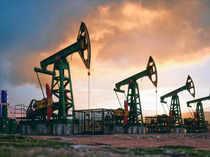
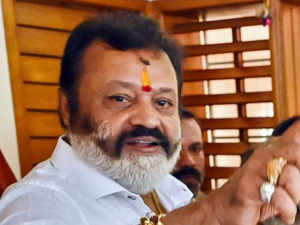
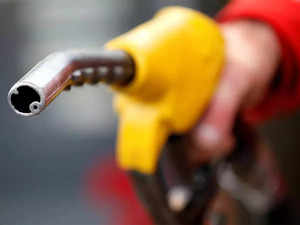
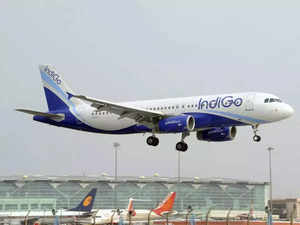
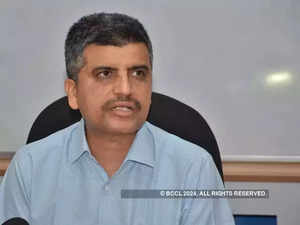

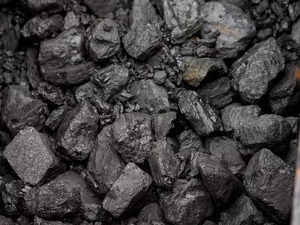
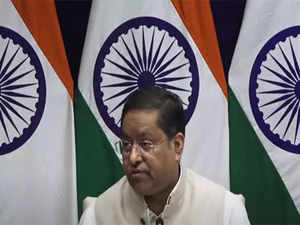

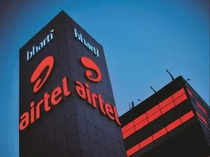
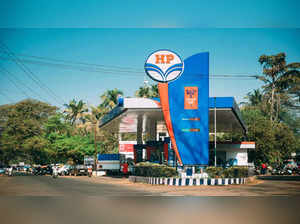
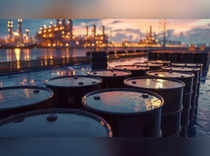
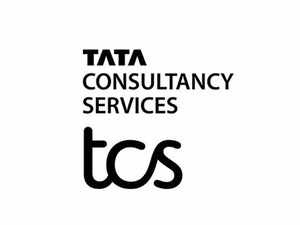
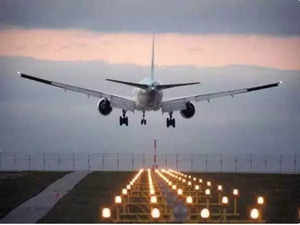
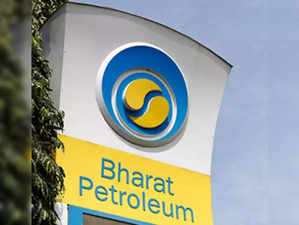

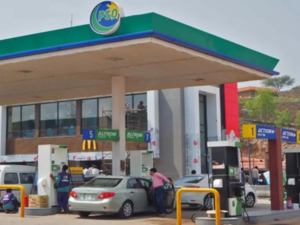
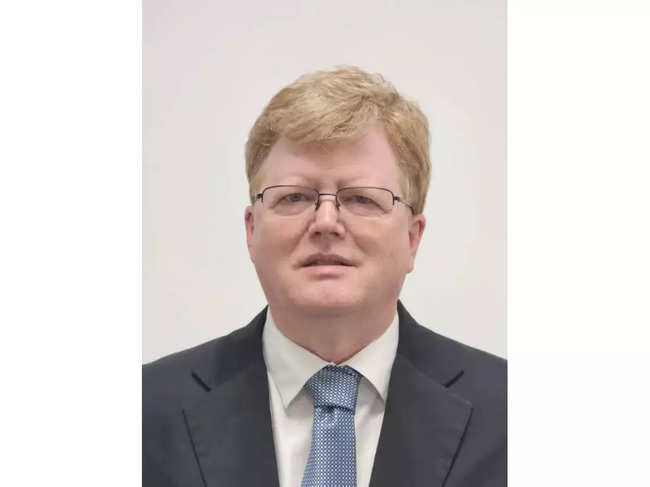
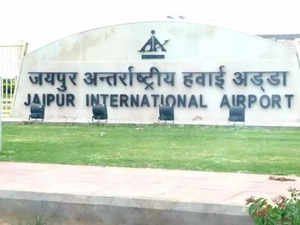
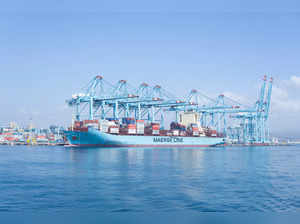
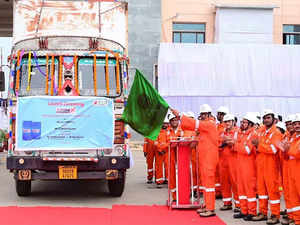
)
